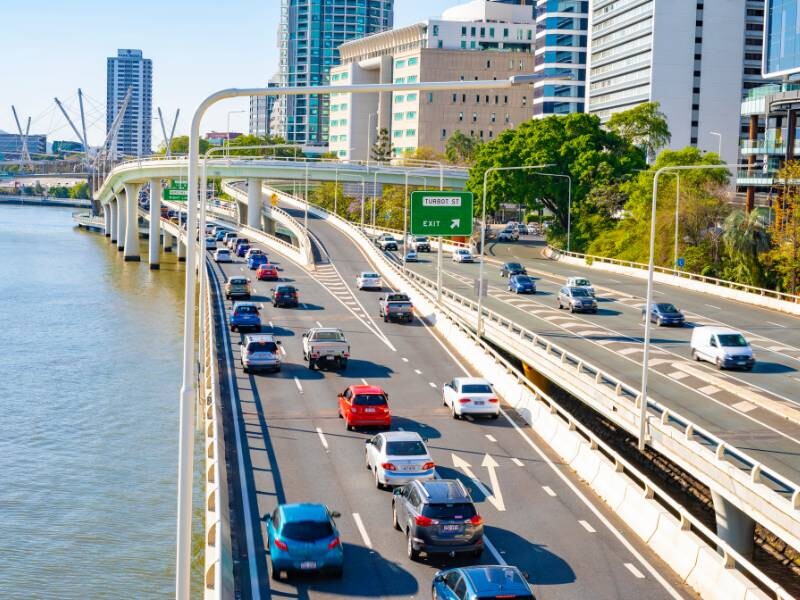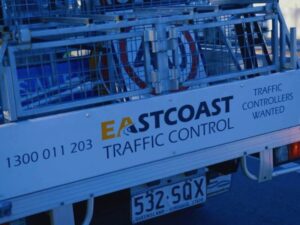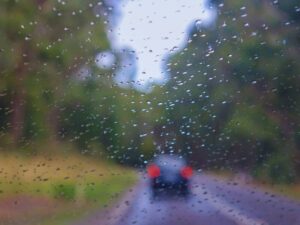The Importance of Road Safety During School Holidays
With the school holidays approaching in Queensland and New South Wales, families are preparing for trips, and roads are expected to be busier than usual. At East Coast Traffic Control (ECTC), we prioritise the safety of all road users. Our strategically located depots across the region give us unique insights into the challenges of holiday traffic. This article offers essential road safety tips, highlights potential travel hotspots, and provides advice for navigating through busy holiday traffic.
Preparing for the Journey
Vehicle Maintenance Checks
Before embarking on your holiday journey, ensure your vehicle is in top condition. Check tyre pressure, oil levels, brake functionality, and ensure your lights are working correctly. Proper maintenance can prevent unexpected breakdowns and accidents.
Packing Essentials
Pack an emergency kit including first aid supplies, water, snacks, a torch, and a reflective triangle. Having these essentials can make a significant difference in case of an emergency.
Planning Your Route
Use Reliable Navigation Tools
Use reliable GPS navigation systems or apps to plan your route. Check for roadworks or detours, which can be particularly common during holiday periods.
Identify Rest Stops
Plan your journey with regular rest stops to avoid fatigue. Australia’s vast landscapes can make long drives tiring, so it’s crucial to take breaks every two hours.
Understanding Traffic Hotspots
Sunshine Coast
A popular holiday destination, the Sunshine Coast sees increased traffic during school holidays. Plan your travel outside peak hours to avoid congestion.
Hervey Bay and Gladstone
These coastal towns attract many visitors. Be prepared for slow-moving traffic, especially near tourist attractions and beaches.
Adapting to Weather Conditions
Stay Informed
Check weather forecasts before and during your journey. Queensland and New South Wales can experience sudden weather changes that impact driving conditions.
Drive Accordingly
Adapt your driving to the weather conditions. Slow down in rain, fog, or strong winds, and keep a safe distance from other vehicles.
Keeping Safe on the Roads
Obey Speed Limits
Speed limits are set for your safety. Adhere to them, especially in school zones and residential areas where children may be playing.
Stay Focused
Avoid distractions such as mobile phones while driving. Keep your focus on the road to react promptly to any sudden changes.
Engaging with Local Communities
Respect Local Rules
Different regions may have specific road rules. Familiarise yourself with these to ensure compliance and respect for local communities.
Support Local Businesses
Take the opportunity to explore and support local businesses along your route. This not only enriches your travel experience but also supports regional economies.
Emergency Protocols
Know Emergency Numbers
In Australia, the emergency number is 000. Familiarise yourself with the process for reporting accidents or hazards.
ECTC’s Role in Safety
ECTC’s depots across Queensland and New South Wales are equipped to support traffic management and safety. Our teams work tirelessly to ensure safe travel conditions.
ECTC’s Regional Presence
Sunshine Coast Depot
Our Sunshine Coast depot plays a crucial role in managing holiday traffic and ensuring road safety for locals and visitors alike.
Hervey Bay and Gladstone Depots
Located in popular tourist areas, these depots focus on maintaining smooth traffic flow and addressing any traffic-related issues promptly.
Rockhampton and Mackay Depots
These depots support traffic control for both local residents and holidaymakers, ensuring that all road users can travel safely.
Townsville and Cairns Depots
In the far north, our Townsville and Cairns depots are vital in managing the increased holiday traffic and maintaining road safety.
Young Depot
In New South Wales, our Young depot serves as a key point for traffic management, ensuring the safety and efficiency of road travel during the busy holiday season.
Final Word
At East Coast Traffic Control, we are committed to ensuring the safety of all road users, especially during the busy school holiday periods. By following our tips and being mindful of the increased traffic, you can help make this holiday season safe and enjoyable for everyone. Safe travels!
FAQs
Q1: What should I include in my vehicle emergency kit? A1: Your vehicle emergency kit should include first aid supplies, water, snacks, a torch, a reflective triangle, and any necessary medication.
Q2: How can I avoid traffic congestion during school holidays? A2: Plan your travel during off-peak hours, use reliable navigation tools to check for roadworks or detours, and be aware of popular tourist destinations that may experience increased traffic.
Q3: What should I do if I encounter severe weather while driving? A3: Slow down, turn on your headlights, and maintain a safe distance from other vehicles. If conditions become too dangerous, find a safe place to pull over and wait until it is safe to continue.
Q4: How often should I take breaks during long drives? A4: It is recommended to take a break every two hours to avoid fatigue. Use rest stops to stretch, hydrate, and refresh yourself.
Q5: What is the emergency number in Australia? A5: The emergency number in Australia is 000. Use this number to report accidents, hazards, or any other emergencies.





